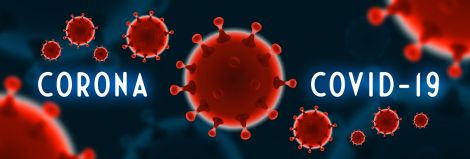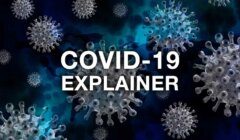Coronavirus / Long Covid sufferers speak of debilitating symptoms and long-term complications
THE MAJORITY of local people who have had a Covid-19 diagnosis experience mild symptoms or moderate illness and recover within two to four weeks. However, as we roll into the last few months of 2020, there is a darker side of Covid-19 emerging, Alex Purbrick writes.
A growing number of people suffering symptoms of the virus well beyond its official two week period, sometimes for months on end, encountering a huge range of health issues ranging from fatigue, breathlessness, muscle aches, memory loss and a persistent cough.
No longer positive with the virus they are referred to as having long Covid.
With symptoms not serious enough to warrant hospital admission but not well enough to resume work or even basic day-to-day activities, long Covid sufferers do not return to their pre-Covid level of health and wellbeing after six months and more than 90 per cent suffer ‘post exertional malaise’ in which mild bouts of mental or physical exertion can trigger symptoms of chronic fatigue.
Due to the nature of Covid-19 and the fact it is a relatively new branch of the coronavirus family of viruses that can range from the mild common cold to the severe acute respiratory syndrome (SARS), health care professionals have been unsure how to treat these individuals.
Many have turned to long Covid support groups on social media and online where they encountered a community offering advice and consolation for the barrage of health conditions they are experiencing.
Online support
Fifty-one year old Kirsten, a local long-term Covid sufferer since March this year, says she has found a lot of comfort from support online. What started as a runny nose and tightness in her chest progressed to a fever, diarrhoea and extreme shortness of breath along with severe lung inflammation which lasted for several weeks.
“I found a blog by Professor Paul Garner, a professor of epidemiology at Liverpool School of Tropical Medicine. He has been suffering from long Covid and has had a roller coaster of different symptoms for weeks on end,” she says.
Become a member of Shetland News
“He is a week behind me and reading his article in the British Medical Journal totally made sense.
“Hundreds of people replied to his blog saying they were experiencing the same symptoms, and they weren’t getting better. I was relieved and thought I am not alone with this illness.”
After eight weeks of shortness of breath, sore heads and sinus problems, Kirsten felt her lung inflammation subside yet also went into a heavy fever with blurred vision. She didn’t understand what was happening and so called NHS 24.
“They signed me off work a week at a time, saying to me I sounded ok on the phone,” she recalls.
“However, sometimes I couldn’t speak on the phone because I was having breathing problems. I still carried on relapsing until August, going into fevers having brain fog, total confusion, not knowing how to do normal things like make a cup of tea.”
Although Kirsten felt her local GPs were sympathetic with her condition it wasn’t until she read another article by Professor Garner that she recognised her symptoms matched the post viral fatigue syndrome that he had been experiencing. She got referred by her employer to occupational health who have helped her to manage her fatigue to stop her relapsing.
The Royal College of Occupational Therapists has specified on its website that “rehabilitation is fast becoming the new priority in dealing with the impact of this pandemic and is crucial for people recovering from Covid-19 infection”.
They have published guides to support people to manage post viral fatigue as they recover from Covid-19.
Some of the symptoms mirror those of ME, or chronic fatigue syndrome, which some health officials believe could be triggered in some instances by viral infections.
There is still a lot that is unknown about long Covid especially as more cases across a range of age groups continue to emerge.
According to studies conducted by Dr Claire Stevens and Professor Tim Spector at Kings College London, based on a Covid symptom study app from 4,182 users, older people are more likely to get long Covid than younger people. Their research shows 10 per cent of 18-49 year olds were affected with long Covid with that figure rising to 22 per cent of over 70s.
However, this represents only a small cross section of the population. There are many people in their 30s and early 40s sharing their symptoms and concerns in the online support groups.
More cases start emerging
One of these is local woman Kerry. The 41-year old became infected with Covid-19 at the beginning of April and ended up in hospital after 10 days of struggling to breathe. Six months later her condition has eased slightly but she continues to have breathing difficulties and a persistent cough.
She tells Shetland News how she’d “never had asthma or breathing problems before but now I have asthma. I have pain and tightness in my chest and throat and I struggle to breathe when I speak too much or move too fast.
“I can’t sleep at night, the pain in my chest moves across my back and my breathing gets worse. I have very vivid dreams and really bad night sweats.
“It’s affected my heart as well as my eyesight. I can no longer see depth or definition and changing my glasses hasn’t helped anything.
“I felt quite isolated in the beginning because there wasn’t much support available and the doctors didn’t really know what was going on. I was told I wasn’t breathing properly due to anxiety but I know this is definitely not anxiety as I’m constantly coughing and struggling to breathe.”
As more cases of people with long Covid symptoms emerge NHS Shetland chief executive Michael Dickson said the health board is aware of “the ongoing impact of Covid after the initial phase” describing it as “a concern”.
He reassures people that NHS Shetland is “exploring how we can capture the ongoing care needs for those patients and we are fortunate to have dedicated teams in both islands, (Shetland and Orkney), who have significant expertise in rehabilitation.
“Should patients require support we have no doubt we will be able to meet their needs,” Dickson says.
More information and support for those suffering from long Covid is available at: www.yourcovidrecovery.nhs.uk
Become a member of Shetland News
Shetland News is asking its readers to consider paying for membership to get additional perks:
- Removal of third-party ads;
- Bookmark posts to read later;
- Exclusive curated weekly newsletter;
- Hide membership messages;
- Comments open for discussion.
If you appreciate what we do and feel strongly about impartial local journalism, then please become a member of Shetland News by either making a single payment, or setting up a monthly, quarterly or yearly subscription.












































































